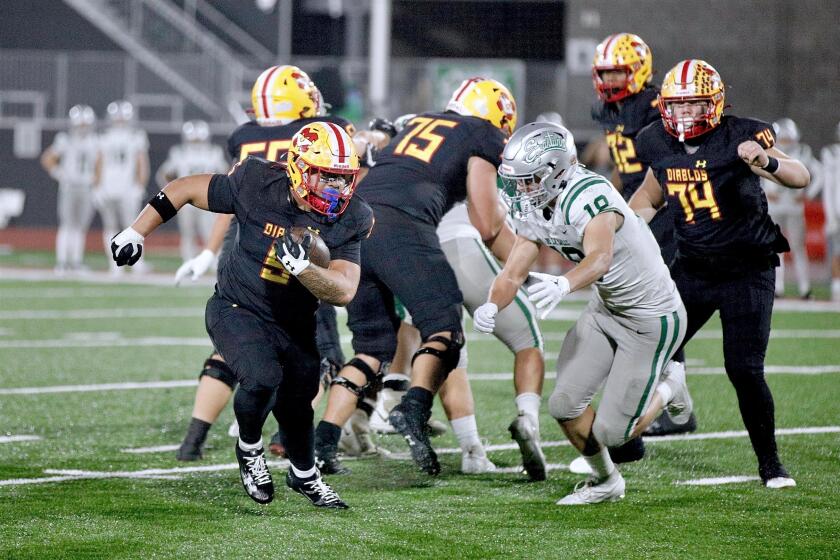COMMENTARY : Are Video Lottery Terminals Boon, Bane?
Charles Town is suffering badly from the same problems that plague small tracks from coast to coast. Its purses don’t give breeders and owners a chance to make money, and many have abandoned the sport, causing a shortage of horses. As the quality of its racing declines, the track’s business has declined. Charles Town recently pared its racing schedule to four days a week, and this week cut purses by 10%, which in turn may drive more people out of the game. It’s a vicious cycle, one growing distressingly familiar in racing.
There is another aspect of Charles Town’s travails that will become increasingly common as such marginal tracks struggle to survive. Management believes its best hope for the future is to offer new forms of gambling--specifically, electronic slot machines, officially known as video lottery terminals or VLTs--but horsemen have resisted the innovation, knowing that the machines will detract from betting on races and fearing that Charles Town’s management may wish to abandon horses altogether.
VLTs were introduced as a state-lottery product in South Dakota in 1989, and most experts believe that they will become the fastest-growing segment of America’s gambling business in the 1990s.
West Virginia became one of the first states to legalize them, and Charles Town’s management immediately began to envision installing them at the track. “We need more revenue to increase purses and increase our horse population,” said track president Keith Wagner. “We’re a track in a town of 6,000 people, and we need to do something to increase our fan base. Without something to increase revenue, the future of small racetracks looks very bleak.”
In the view of many horsemen, though, management’s desire to install the VLTs has been an obsession that has poisoned their relations. “They’ve had tunnel vision,” said one trainer. “It’s the only thing they can think of: The machines! The machines! The machines!” And this focus on the VLTs, horsemen say, has caused the management to abandon any more than a perfunctory interest in selling their basic racing product.
“What was the last time you saw an ad in a newspaper for Charles Town?” asked Randy Funkhouser, president of the track’s division of the Horsemen’s Benevolent and Protective Assn. “There’s been a total lack of promotion.” Moreover, Funkhouser said, other tracks beset with problems like Charles Town’s have boosted their handle and addressed their horse shortage with aggressive, extensive simulcasting of races from other tracks. Charles Town has done little of this.
Because the horsemen doubt management’s commitment to racing, all of their discussions about VLTs have been permeated with hostility and distrust. More than VLTs, Funkhouser said, “We need an owner who understands horse racing.”
Management has offered to split profits from the machines 50-50 after expenses, but the horsemen are wary of letting management define expenses. Horsemen also are fearful that once the machines are entrenched, management will pay even less attention to the racing product than it does now. And the horsemen believe they would be rendered powerless.
Now they have the threat of a boycott in disputes with management; when the machines are cranking out profits, management could say, “Go ahead and strike.” There is no question that the machines will suck a considerable amount of money from the parimutuel handle. Since Mountaineer Park in Chester, W.Va. installed VLTs, wagering on races has gone from bad to disastrous. At Mountaineer, however, the horsemen negotiated a lousy deal.
The Charles Town horsemen are preparing to make a counterproposal on VLTs, and as they do, they must address the basic question that is bedeviling many segments of the nation’s racing industry. If they can get a fair deal, if they and management can increase their income, is it wise for racetracks to incorporate VLTs and other forms of gambling into their product?
People in the industry must recognize the fact that the proliferation of new forms of gambling will hurt parimutuel wagering whether tracks embrace them or shun them.
More to Read
Go beyond the scoreboard
Get the latest on L.A.'s teams in the daily Sports Report newsletter.
You may occasionally receive promotional content from the Los Angeles Times.










